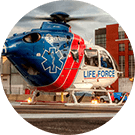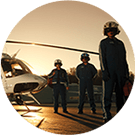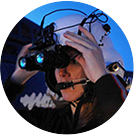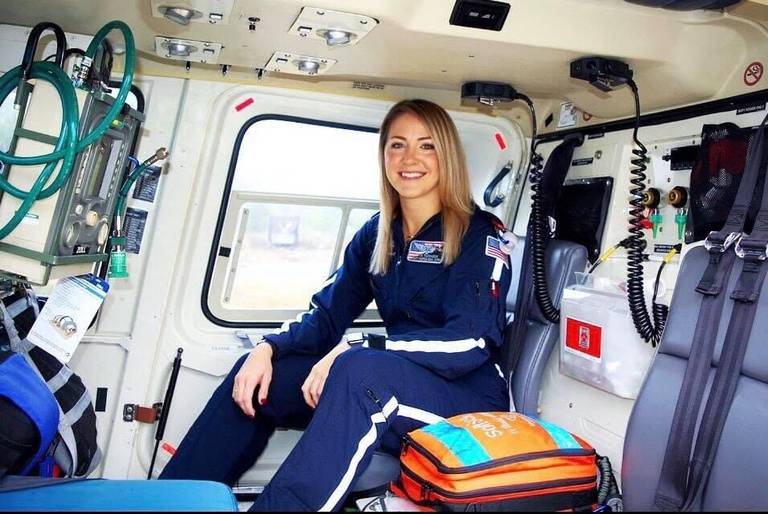
Britta Thomason, a Peach County native, has served on the frontlines of COVID-19 as both a flight nurse and as part of the Nurse Navigation Line for Global Medical Response crews deployed to New York and New Jersey at the beginning of the pandemic.
Thomason also leads the Air Evac Lifeteam base in Dublin. In 2019, she was named her company’s Flight Nurse of the Year.
Q: What has your journey to nursing been like?
A: I graduated with my bachelor’s in nursing in 2011 from the University of West Georgia. I came back home and started working in the ER at The Medical Center straight out of school. I absolutely loved it. I learned a lot and honestly I credit my other successes in nursing to the things that I learned there. I worked there for a couple of years before doing some travel nursing. I lived in Hawaii, Colorado and Augusta.
I decided to come back home and decided that I wanted to fly. I joined the Air Evac in January of 2017 and then I became the base clinical lead at the base in Milledgeville, which meant I was leading the medical crews including education. I am actually now the program director for the base in Dublin, which means I am the supervisor over the base and oversee day-to-day operations.
Q: What was your role like at the beginning of the pandemic for GMR?
A: At the start of the pandemic, I was able to be a part of the Nurse Navigation Line that was essentially a resource line for our employees under the Global Medical Response umbrella. It was for employees to be able to call if they had been exposed to a COVID-19 patient. We were able to guide them on what to do, what type of treatment that they might need and help oversee the day-to-day operations. It was good to be a part of that.
Q: What made you want to be a flight nurse?
A: Working in the ER. you always see flight crews come in and I respected them so much, what they did, where they did it and how they did their job. I viewed it as like the ultimate challenge as ER nurse to do something like that. It is not typical for nurses to be in EMS. Usually, they are not in that pre-hospital environment.
I just had such an appreciation for the environment that they did their job in; being in a helicopter a couple thousand feet in the air and the impact they could make on a patient’s life. They could make all the difference between life and death of a patient in just that short amount of time.
Q: What was it like for you to go from admiring them to actually doing that job?
A: It was everything that I thought it would be and more. The respect that I had definitely went up actually doing it. The amount of training and education that it requires to be a flight crew member is pretty extensive. You spend the first six months doing all kinds of training. It was stressful but in a good way. You really got to see the true nurse in you. I found that I was capable of doing things that I didn’t know I was capable of doing. I have really enjoyed it the whole time I have been doing it.
Q: Was there ever a specific moment or event that made you realize that nursing was for you?
A: In nursing school, some people go in knowing where they want to work or what specialty they want to go into it. I did not know. I went through clinicals on various floors from labor and delivery to pediatrics. I was like I don’t know if I want to do any of these. Then I went on my ER rotation and I knew then that this is where I need to be. I found my love for ER nursing. I don’t know if there is one particular time where I thought this is where I belong. It almost seems like every patient that you fly that is in critical condition needs your care and they need the care of a hospital. It is almost like a recurring thing. Every single one of those you go this is what I am supposed to be doing. It just happens over and over again.
Q: What is it like to have an impact on not only the patient that you are transporting but also that person’s family? Has COVID-19 impacted that part of the job at all?
A: It is a pretty big weight when you go into a patient’s room and especially during COVID. Because family members weren’t allowed to see the patients and now you’re having to take them further away. And you are having to put them on a helicopter and flying them further away. I know that what I am doing is best for patients and trying to get them somewhere that is a higher level of care or more focused on a particular treatment. So for me, I know that I am doing what is best to improve that outcome for the patient. But a lot of times, family members aren’t able to grasp that because the situation is scarier for them and it seems like things are just getting worse. I always try to talk to them before we leave and get a phone number so that I can call and update them as soon as possible. It is a huge weight to take a patient away like that regardless of if it is COVID or not. It helps just knowing that you are doing what is best for them.
Q: How do you think that COVID has impacted nurses and people’s perception of them?
A: I don’t want to make it sound like there wasn’t an appreciation for nurses before, but I think if anything, it validates even more what we do and how important we are and the impact that nurses actually have on people’s lives. It’s just strengthened our skills and our knowledge. It validates the nursing profession. Who else could have taken care of the world essentially during all of this?
Q: What are some of the biggest challenges that you face as a nurse?
A: It’s just the hard truth that you can’t save everybody. And that’s challenging. But I think knowing that you did your best to save them, that you did everything that you could to save that person and maybe ultimately you didn’t save them in the long run, but in the short term you did. And maybe you were able to get them somewhere that they could say goodbye to their family or something like that. You can always take those challenging things and turn them into rewarding things. And the ones that you do save are always really rewarding as a nurse.
Q: What are some things that you enjoy outside of work?
A: I just love hanging out with my friends and my friends, my boyfriend and just kind of stepping away from work is always good because what we do is tough and you see a lot of tough things. I love to travel. I love going to the beach. I am pretty low-key. I don’t like to do a lot of extravagant things. I like the simple stuff. I love Taylor Swift. I am a Swiftie. I won’t deny it.
Q: What advice would you give to those who are considering becoming a nurse?
A: If you’re going into it for the money or you’re going into it for recognition or anything like that, you’re going into it for the wrong reason. If you don’t have a passion, a true passion for helping people, then don’t go into it.
But if you do, then it’s the most rewarding thing in the world, because essentially that’s what you get to do every day of your life: help people. And there are so many different avenues that you can go into with nursing. It doesn’t have to be the ER blood and gut. You could deliver babies every day and bring new life into the world. Or you could work in nursing homes and help elderly people at the end of their life. I just say that if you want to be a nurse, all you really need is a passion for helping people.
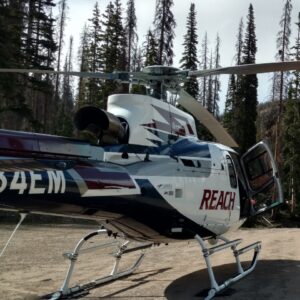
Air Ambulances are Helping Bridge the Gap in Healthcare for Rural Hospitals
One of the biggest issues in rural healthcare is the lack of healthcare facilities. Many rural areas don’t have enough doctors or hospitals, and appropriate
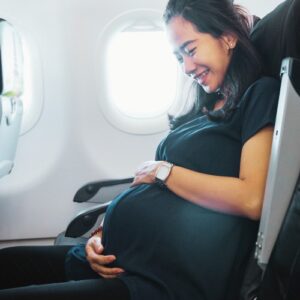
Tips for Flying while Pregnant
Most pregnancies are uneventful, and women can continue with their daily lives with few restrictions. Flying, however, might not be an activity that is right

Prepare for Travel with Expert Pre-travel Health Tips
Pre-travel health care is important for both domestic and international trips. It helps ensure you are ready to handle any common health problems that might


